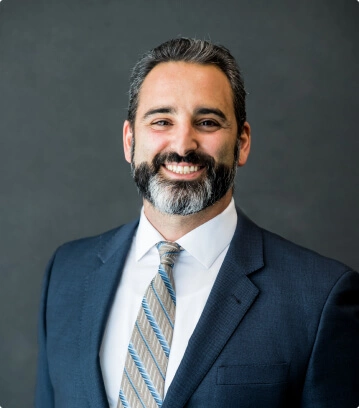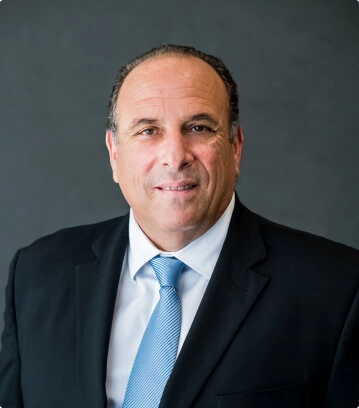Suffering any type of injury can turn your whole world upside down. But traumatic brain injuries can completely shatter everything you once knew – your ability to work, think clearly, or even be the person you were before.
When an accident caused by someone else’s negligence leaves you with a permanent brain injury, the impacts ripple out to every area of your life. At Pasternack Injury Law Group, we have helped numerous traumatic brain injury victims in San Diego get the justice, medical care, and compensation they deserve after accidents left them permanently impacted.
Traumatic brain injuries caused by preventable accidents often require a lifetime of treatment and present ongoing struggles. Securing experienced legal representation immediately after your injury can help you move forward and reclaim aspects of the life you had before.
What is a Traumatic Brain Injury (TBI)?
Traumatic brain injury, often shortened to TBI, is exactly what it sounds like – an injury to the brain caused by some external physical force. Doctors typically classify TBIs as either open or closed head injuries.
Open (or penetrating) head injuries occur when the skull is pierced by a foreign object that enters the brain tissue. Gunshot wounds or other puncture wounds usually cause these types of TBIs.
Closed head injuries don’t involve any penetration of the skull but still damage the brain through heavy blunt-force trauma. Whiplash from car accidents, slamming your head on the ground during a fall, or even forcefully hitting your head during sports can all lead to closed-head TBIs.
The initial symptoms of a TBI usually include:
- Headaches
- Confusion
- Lightheadedness
- Blurred vision
- Ringing ears
- Bad taste in the mouth
- Fatigue
- Lethargy, and
- Behavioral or mood changes
Unfortunately, some severe brain injuries result in unconsciousness from the moment of injury, leaving the victim completely unaware of the damage.
While many visible injuries like broken bones start healing immediately, the long-term consequences of TBIs sometimes don’t fully materialize right away. But make no mistake; the impacts can last a lifetime if victims don’t receive proper treatment and secure the compensation needed to recover.
Common Causes of Traumatic Brain Injuries
By far, the most common cause of TBIs stems from motor vehicle accidents. Whether from the initial impact, collisions slamming your head into the interior, or traumatic whiplash, car crashes come with some of the highest risks for concussions and closed-head TBIs.
Motorcyclists and pedestrians suffer TBI rates up to 8 times higher than other accident victims.
Other frequent sources of TBIs in personal injury cases include:
- Slip and fall accidents – Hitting your head after a fall can easily cause concussions.
- Workplace accidents – Construction sites, industrial equipment, and occupations involving heights or operating heavy machinery all expose employees to TBI risks.
- Acts of violence – Severe beatings, abusive head trauma, or gunshot wounds can all lead to TBIs.
- Sports accidents – Especially high-contact sports like football, boxing, hockey, and rugby that involve hard hits and tackling.
Here’s the challenging part, though – while broken bones reveal themselves on an X-ray after an accident, closed-head TBIs don’t always show obvious physical signs of damage. You might walk away from a car crash feeling “fine” with no idea you suffered a traumatic brain injury.
Unlike cuts that start bleeding or broken limbs that immediately swell up, TBIs can take days or even weeks to fully surface. Post-concussion syndrome and other long-term impairments don’t happen right away. That’s why obtaining prompt medical evaluation and legal help is so crucial after any accident involving a potential head injury.
Diagnosing Traumatic Brain Injuries
We know receiving the correct diagnosis as soon as possible can have a huge impact on recovering from a TBI. However, most standard emergency room evaluations miss indicators of closed-head injuries.
Here are some of the ways doctors identify traumatic brain injuries for injury claims:
- Neuropsychological testing – Lengthy batteries of tasks and questions to uncover cognitive deficits.
- CT scans – Advanced cross-sectional imaging that reveals intracranial bleeding and contusions.
- MRIs – Magnetic resonance imaging helps detect more subtle axonal shearing.
- EEGs – Checking electrical activity in the brain for abnormalities.
- Assessment of symptoms – Cognitive, emotional, and behavioral changes all help indicate potential TBIs.
Mild TBIs without visible bleeding or loss of consciousness often slip through the cracks at busy ERs. That’s why following up with neurologists and neuropsychologists experienced in brain trauma is vital. Identifying the extent of any structural, cognitive, emotional, or behavioral impairment is necessary to determine the full impact on a victim’s life.
Proper testing also provides critical medical evidence. Documenting injuries through expert diagnoses not only ensures someone gets the treatment they need but also establishes legal proof of the harm suffered.
Far too often, victims walk away from accidents with undiagnosed severe traumatic brain injuries that worsen over time. We know from experience that obtaining medical opinions as quickly as possible leads to far better outcomes for TBI victims.
Compensation for Traumatic Brain Injuries
Like many serious injuries, recovering from a traumatic brain injury almost always requires extensive medical treatment, therapy, and rehabilitation.
If negligence caused your TBI, securing compensation should cover the following:
- Medical expenses – Any upfront costs spent to diagnose the TBI, emergency hospital bills, medications, and fees for specialists like neurologists or neuropsychologists. Long-term rehabilitative therapy is often essential as well.
- Lost income – Missing work for treatment, impaired cognitive function making job duties difficult, or inability to return to your previous career can all destroy your earning capacity. Calculating this lifetime loss is complicated, but we seek every avenue.
- Pain and suffering – TBIs often leave victims dealing with chronic headaches, light and sound sensitivity, constant dizziness, mood disorders like aggression or depression, and more. No dollar amounts can quantify your suffering, but equitable compensation should account for it.
- Loss of enjoyment of life – Inabilities to participate in hobbies, social activities you previously loved, outings with family and friends, and other favorite parts of life merit substantial damages. What matters most to you that your TBI took away?
Here’s the reality – nothing will ever return someone’s brain to the condition it was in before a traumatic injury. However, securing adequate compensation helps TBI victims pay for the care needed to work towards recovery, make up for lost income, and readjust life plans altered by new challenges.
We’ll fight to prove exactly how the negligence caused your suffering and what it will take to maximize your well-being moving forward.
Seeking Legal Representation
Handling a personal injury claim involving a traumatic brain injury is extremely difficult without an attorney’s guidance. At Pasternack Injury Law Group, our team helps TBI victims in several key ways.
Our personal injury lawyers consult with respected medical experts to demonstrate precisely how the TBI happened, the extent of the damage, and the recommended treatment needed.
We calculate both the economic and non-economic damages to seek compensation for, factoring in medical bills, lost income, pain and suffering, loss of enjoyment of life, and more.
But our support goes much deeper than legal acumen and securing fair money damages. We take the time to develop true relationships with every client – compassionately learning your unique story, advocating for your best interests every step of the way, and providing caring counsel throughout your recovery process.
Call Pasternack Injury Law Group Today
For decades, our family-owned personal injury law firm has helped traumatic brain injury victims recover damages to cover medical expenses, lost income, pain and suffering, and enjoyment of life losses.
We treat every client like family – guiding them through the legal process with compassion while aggressively pursuing fair compensation. Don’t wait to get experienced legal representation on your side.
Have you suffered a catastrophic injury? Contact Pasternack Injury Law Group today for a free consultation with our San Diego traumatic brain injury lawyers.
The sooner we start investigating your claim, the more effectively we can demand maximum compensation.



